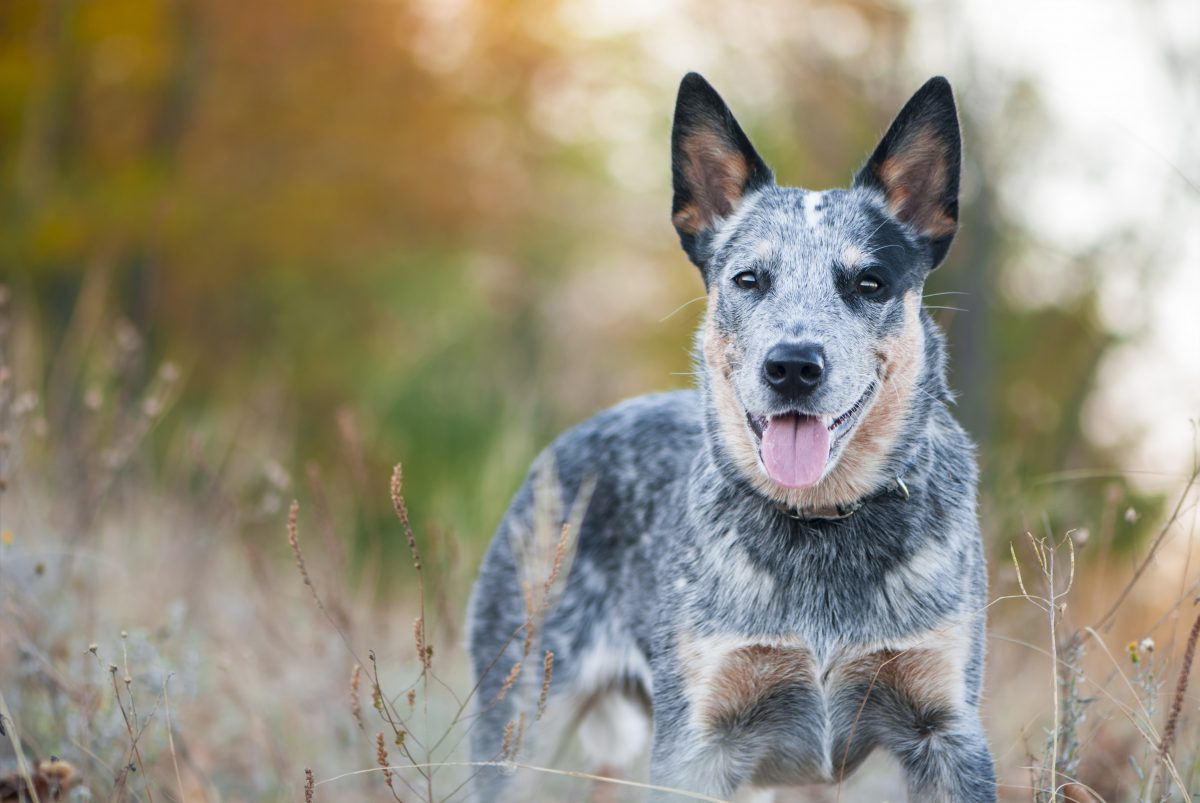Find out what dog breed has the least health issues. The Basenji dog breed is known to have the least amount of health problems. This breed is generally healthy.
When considering a new canine companion, it’s important to prioritize their well-being. The Basenji stands out for its minimal health concerns, making it an appealing choice for prospective dog owners. This breed is not prone to many hereditary conditions that commonly affect other breeds.
By selecting a Basenji, you can enjoy a longer, healthier life with your furry friend. Let’s delve deeper into why the Basenji is a top choice for those seeking a low-maintenance, healthy canine companion.
What Dog Breed Has the Least Health Issues? Read the full post thoroughly to know more details about it.

Credit: www.goodhousekeeping.com
Introduction To Canine Health
Dogs, our faithful companions, deserve the best care to lead healthy lives. Understanding canine health is crucial for responsible pet ownership.
Importance Of Breed Health
Different dog breeds have varying susceptibility to health problems. Some breeds are genetically predisposed to certain conditions.
Factors Influencing Dog Health
- Diet: Proper nutrition is vital for overall health and can prevent many health issues.
- Exercise: Regular physical activity keeps dogs fit and helps prevent obesity-related problems.
- Genetics: Inherited traits significantly affect a dog’s health and predisposition to diseases.

Credit: canna-pet.com
Breed-specific Health Considerations
When choosing a dog breed, considering their health is crucial. Different breeds have varying genetic predispositions and common ailments. Understanding the breed-specific health considerations can help potential dog owners make informed decisions and provide the best care for their furry friends.
Genetic Predispositions
Genetic predispositions play a significant role in a dog’s overall health. Certain breeds are more prone to specific genetic conditions due to their lineage. For example, Labrador Retrievers are predisposed to hip and elbow dysplasia, while Cavalier King Charles Spaniels are susceptible to heart conditions such as mitral valve disease. When selecting a breed, these genetic predispositions should be carefully considered to ensure proactive management of potential health issues.
Common Ailments By Breed
Understanding the common ailments associated with specific breeds is essential for proactive health management. Bulldogs often experience respiratory issues due to their unique facial structure, German Shepherds are prone to hip dysplasia, and Dachshunds are susceptible to intervertebral disc disease. By being aware of these breed-specific health concerns, owners can take preventive measures and seek early intervention to maintain their dogs’ well-being.
What Dog Breed Has the Least Health Issues? Click here for more details about this: Click here
Top Breeds With Minimal Health Issues
When bringing a furry friend into your home, one of the most important considerations is the dog’s health. While all breeds are prone to certain health issues, some breeds are known for having minimal health problems. Here are the top breeds with minimal health issues that you may want to consider when looking for a new canine companion.
Australian Cattle Dog
The Australian Cattle Dog is a hardy and healthy breed known for its endurance and resilience. With a lifespan of 12 to 15 years, this breed is relatively free from genetic health issues. However, they may be prone to deafness and progressive retinal atrophy, but responsible breeding practices can help minimize these risks.
Chihuahua
The Chihuahua is a small breed with a long lifespan of 14 to 16 years. Their size contributes to their minimal health issues, as they are less prone to joint problems and certain genetic conditions. However, dental care is crucial for Chihuahuas due to their small mouths and teeth, which are prone to dental issues.
Greyhound
The Greyhound is a relatively healthy breed with a lifespan of 10 to 13 years. They are generally free from hereditary health problems, making them a great choice for individuals seeking a low-maintenance canine companion. However, they are susceptible to certain conditions such as bloat and osteosarcoma, but regular vet check-ups can help detect and manage these issues.
Characteristics Of Healthier Dog Breeds
Healthier dog breeds like the Basenji and Australian Cattle Dog tend to have fewer health issues. These breeds are known for their robust genetics and overall vitality, making them less prone to common health problems.
When choosing a dog, health should be a top priority. Some dog breeds are prone to various health problems, which can be costly and stressful for pet owners. However, dog breeds are known for their robust health and longevity. In this article, we’ll explore the characteristics of healthier dog breeds, including their physical traits, lifestyle, and activity levels.
Physical Traits
One of the key factors in a dog’s health is their physical traits. Some breeds are genetically predisposed to certain health conditions, while others have fewer health problems due to physical characteristics. Here are some physical traits to look for in a healthy dog breed:
- Medium-sized breeds tend to be healthier than their larger counterparts, as they have fewer joint and bone problems
- Dogs with short hair are less prone to skin problems and allergies
- Long-nosed breeds, such as the Basenji and Greyhound, are less prone to respiratory problems
- Dogs with a sturdy build, such as the Australian Cattle Dog and Bull Terrier, are less prone to musculoskeletal problems
Lifestyle And Activity Levels
Another important factor in a dog’s health is their lifestyle and activity levels. Dogs that are well-exercised and mentally stimulated are generally healthier than those that are sedentary or bored. Here are some lifestyle and activity characteristics to look for in a healthy dog breed:
- Dogs that require regular exercise, such as the Border Collie and Australian Shepherd, tend to be healthier than those that do not
- Dogs that enjoy mental stimulation, such as the Poodle and Shetland Sheepdog, are healthier than those that do not.
- Dogs adaptable to different environments, such as the Labrador Retriever and Golden Retriever, tend to be healthier than those not.
- Dogs that are not prone to anxiety or aggression, such as the Bichon Frise and Cavalier King Charles Spaniel, tend to be healthier than those that are
In conclusion, it’s important to consider a dog breed’s health characteristics when choosing one. By selecting a dog breed genetically predisposed to fewer health problems and thrives in an active, mentally stimulating environment, you can increase your chances of having a healthy, happy pet for years.
What Dog Breed Has the Least Health Issues? Also, click here for more details about dog health: click here
Role Of Breeding Practices
Breeding practices play a crucial role in determining a dog breed’s health. Breeds like the Australian Cattle Dog, Basenji, and Border Collie are known for having fewer health issues due to careful breeding for genetic diversity and health.
Responsible breeding practices play a crucial role in determining the health of a dog breed. When breeders follow ethical breeding practices, they help reduce the occurrence of genetic disorders and promote the breed’s overall health. On the other hand, irresponsible breeding practices like inbreeding can lead to a wide range of health problems in dogs. In this blog post, we will explore the dog breeds with the fewest health problems and the role of breeding practices in achieving good health.
Responsible Breeding
Responsible breeding involves selecting dogs for breeding based on their genetic health, temperament, and physical characteristics. Breeders should conduct health tests on the potential breeding dogs to ensure they are free from genetic disorders. They should also consider the breed’s history and avoid breeding dogs with a high incidence of genetic health problems. By selecting healthy dogs for breeding, breeders can reduce the risk of passing on genetic disorders to the offspring.
Avoiding Inbreeding
Inbreeding is a breeding practice that involves breeding closely related dogs. While it may produce desired traits in the offspring, it can also lead to a higher incidence of genetic disorders. Inbreeding increases the likelihood of passing on recessive genes that cause genetic disorders. It is crucial for breeders to avoid inbreeding and instead breed dogs that are not closely related. By doing so, they can reduce the incidence of genetic disorders and promote the breed’s overall health.
In conclusion, responsible breeding practices and avoiding inbreeding can significantly affect a dog breed’s health. Breeders should prioritize genetic health when selecting dogs for breeding and avoid inbreeding to reduce the incidence of genetic disorders. By following these practices, we can ensure that the dog breeds we love remain healthy and happy.
Preventive Health Measures
Preventive health measures are crucial for maintaining the well-being of any dog breed, especially those prone to health issues. By implementing these measures, dog owners can help reduce the risk of potential health problems and ensure their canine companions live long, healthy lives.
Regular Veterinary Check-ups
Regular veterinary check-ups are essential for monitoring a dog’s overall health and addressing any potential issues at an early stage. Annual check-ups allow veterinarians to assess the dog’s physical condition and vital signs and conduct preventive screenings for common health concerns.
Diet And Nutrition
Maintaining a balanced diet is key to preventing health problems in dogs. High-quality nutrition tailored to a dog’s specific needs can help boost immunity and prevent obesity, which is often linked to various health issues. It is advisable to consult with a veterinarian to determine the most suitable diet for a particular breed.
Exercise And Mental Stimulation
Regular exercise is essential for maintaining a dog’s physical and mental well-being. Engaging in physical activities helps prevent obesity and promotes cardiovascular health. Additionally, mental stimulation, such as interactive play and training exercises, is crucial for avoiding anxiety and behavioural issues.
Understanding Life Expectancy
Age Range Of Healthier Breeds
When selecting a dog breed, it’s crucial to consider potential health issues that may arise. Some breeds are inherently healthier and have a longer life expectancy than others, making them ideal choices for those seeking a long-term furry companion. Understanding the age range of these healthier breeds can provide valuable insight into the potential lifespan of your future pet.
Extending Your Dog’s Lifespan
While genetics play a significant role in a dog’s life expectancy, several proactive measures can be taken to extend your furry friend’s lifespan. From proper nutrition and regular exercise to routine veterinary care and mental stimulation, various strategies can contribute to a longer, healthier life for your canine companion.
Adopting A Dog With Fewer Health Issues
Choosing The Right Breed For Your Lifestyle
When selecting a dog breed, consider your activity level and living situation.
Health Screening Before Adoption
Ensure thorough health checks to prevent potential hereditary health issues.
Case Studies
Case studies have shown that certain dog breeds are less prone to health problems, making them excellent choices for potential pet owners. Success stories of low-maintenance breeds and long-term health in mixed breeds provide valuable insights into the canine health and well-being world.
Success Stories Of Low-maintenance Breeds
Regarding low-maintenance breeds, the Poodle stands out as a prime example. These intelligent and adaptable dogs have a strong genetic makeup that makes them less susceptible to common health issues such as hip dysplasia and certain genetic diseases. Additionally, the Basenji, known for its clean bill of health and minimal grooming requirements, has gained recognition as a low-maintenance breed with a remarkable track record in terms of health.
Long-term Health In Mixed Breeds
Looking at the long-term health of mixed breeds, it’s evident that they often exhibit more extraordinary genetic diversity, which can lead to a reduced risk of hereditary health problems. Due to their mixed genetic heritage, mixed genetic heritage, mixed breeds such as the Labradoodle and Goldendoodle have shown remarkable resilience to common health issues. This enhanced genetic variation contributes to their overall health and longevity, making them appealing options for individuals seeking a dog with minimal health concerns.

Credit: canna-pet.com
Conclusion: Embracing A Healthy Future
Welcoming a healthier tomorrow involves considering dog breeds with minimal health issues. Some breeds known for good health include Australian Cattle Dogs, Basenjis, and Whippets. Choosing a breed with fewer health problems can lead to a happier and longer life for your furry companion.
What Dog Breed Has the Least Health Issues? Read the following questions carefully for details.
Making Informed Decisions
Choosing a dog breed with minimal health issues is crucial for a happy partnership.
The Joy Of A Healthy Companion
Enjoy the unmatched companionship of a healthy dog, fostering lifelong memories.
Frequently Asked Questions
What Dog Breed Has the Least Health Issues?
The Basenji dog breed is known to have the least amount of health problems. This breed is generally healthy.
What Is The Healthiest Breed Of Dog?
The healthiest breed of dog is subjective. Generally, mixed-breed dogs tend to be more nutritious due to genetic diversity. Regular exercise, a balanced diet, and proper healthcare are key to a dog’s well-being. When choosing a pet, it’s important to consider the individual dog’s needs and lifestyle.
What Dog Has The Least Health Conditions?
The Basenji dog breed is known to have the least health conditions compared to other breeds.
What Is The Healthiest Low-Maintenance Dog Breed?
The healthiest, low-maintenance dog breed is the Beagle. They are active and sturdy, with minimal grooming needs. Their friendly and adaptable nature makes them great companions for adults and children. Regular exercise and a balanced diet keep them healthy and happy.
What Dog Is The Easiest To Take Care Of?
The easiest dog to take care of is the beagle. They are friendly, low-maintenance, and great with kids. Their short coat requires minimal grooming, and they adapt well to different living environments. Beagles are also known for being social and easy to train.
What Dog Breed Has the Least Health Issues? Learn more about it. Read more
Conclusion
When choosing a dog breed, considering health is crucial. While no breed is entirely free from health issues, some have lower risks. Research and responsible breeding can help minimize health problems in dogs. Regular vet check-ups and proper care are essential for your furry companion’s well-being.

Hello I am Farhana I have been doing research on dogs since last 10 years. I have been doing research on dog special parts or dog food since last 10 years. I have gained knowledge about my dog in these ten years so. I want to blog about it daily.

